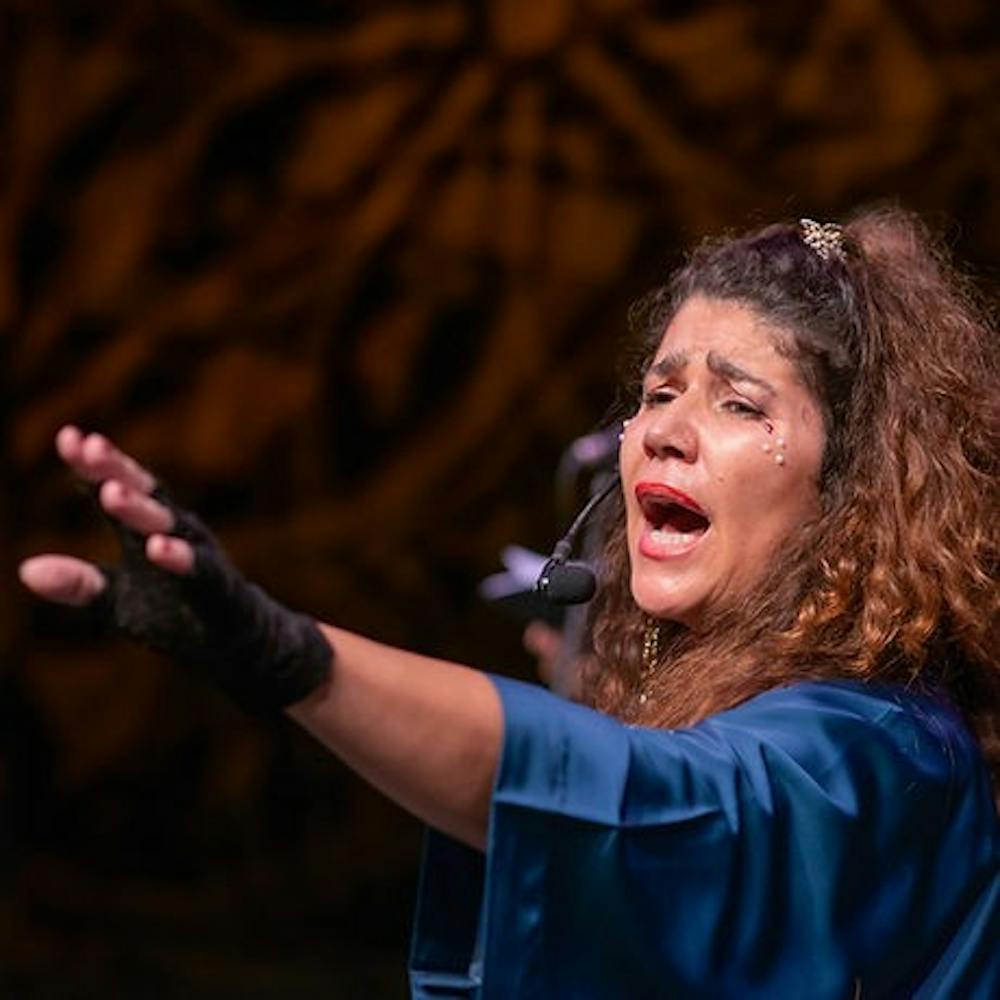The summer sun blazed as kids played outside a home near São Paulo, Brazil. Inside, concealed underneath her great-grandmother’s couch, lay a little girl with dark-brown eyes and hair. Her chestnut-colored hands clutched her favorite book as she diligently turned the pages.
The grandmother spied her granddaughter's foot peeking out from under the couch.
“Paula Gândara, I can see you,” she said. “Go outside! You need to go out and play!”
Book in hand, the little girl raced out of the house.
Gândara, professor of Lusophone studies (the study of Portuguese-speaking people and countries) at Miami University, and singer/lyricist of Brazilian music, was born in Lisbon, Portugal, in 1967. She spent most of her childhood like this, always reading. Gândara said reading helped her deal with the world around her.
“Since I was very little, books were an escape from reality,” Gândara said. “I lived in a depressive state most of my life because of my childhood.”
From a young age, Gândara’s parents were absent from the home, and poverty surrounded her. She said because the education system in Brazil was lacking, her grandparents sent her to Portugal to attend school instead of a school in São Paulo.
Although Gândara spent much of her childhood and teens reading, she also dreamed of becoming a dancer.
“Even though I read and I read and I read,” Gândara said, “I also exercised like crazy because I was preparing to be a dancer.”
However, her dance career would not come to fruition. At 19, she was in an accident that left her unable to walk for nearly a year and dance professionally for the rest of her life.
In 2000, Gândara moved to the U.S. at 33 with her 3-year-old daughter. A decade before, she had received a full-ride scholarship to finish her Ph.D. in Hispanic literature and linguistics at the University of Massachusetts (UM) at Amherst. She applied again after losing her grandparents and received the same opportunity.
“I didn't come then because my great-grandmother who raised me was still alive,” Gândara said. “I couldn’t bear thinking of not being with her and not knowing how many years she would live.”
Enjoy what you're reading?
Signup for our newsletter
After her grandparents died, Gândara no longer had any close familial ties in Brazil. She said their death caused the loneliness that drove her decision to move to the U.S.
“Somehow, it seemed easy in my head to bear the loneliness of a place in which I was supposed to be lonely than to be in a place in which I was not supposed to be lonely, yet I was,” Gândara said.
Gândara graduated from UM with her Ph.D. in 2003. In the same year, she started working as a professor of Lusophone studies at Miami and has been for the last 20 years.
Although Gândara said she enjoys teaching at Miami, fitting in with people outside the university has been a struggle for her. She said it’s harder to make friends here than in Brazil because of cultural differences.
“Some people don’t know how to deal very well with too many emotions or with loud emotions,” Gândara said, “and that’s how we are. We yell, and we scream, and we laugh a lot.”
In the last four years, Gândara said things have started to get better. She said investing time into her music and husband, João Rocha, has made her feel more whole.
“I've actually been enjoying these last years here, and now I feel alive,” Gândara said. “Now, it’s not just a movie. I'm a real person here.”
Before meeting her husband, she wrote a collection of poems called “Horas de Língua” (2006). It wasn’t until 2017, when the Duo Rocha Gândara was born, that those poems became the lyrics to their music.
“I had dreamt of that for so long,” Gândara said, “because I always felt that the words needed to become alive.”
Even with an outlet like her music, Gândara still felt unconnected to anyone outside her home and the world of academia.
“I can connect with you and connect with [other students], but people my own age from Ohio have their own culture, and for them, I'm like an alien, you know?” Gândara said.
Victoria Rangel Lopez , a senior speech pathology and Spanish major, took four of Professor Gândara’s classes and was a teacher’s assistant for her accelerated introduction to Portuguese (POR 111) class. Lopez said Gândara is “very personable” and the two have become friends.
“I like to call her my Portuguese mom because she just makes you feel safe,” Lopez said.
Cecelia Hemmerle, junior botany major, had Gândara for her Brazilian literature and film (BWS 383) class. Hemmerle compared Gândara to the teacher, John Keating, from the 1989 film “Dead Poets Society.”
“She reminds me of that type of teacher,” Hemmerle said. “She forces the material to be personal, which I think no professors, at least not many, have the guts to do.”
Gândara said that despite the challenges, she stands by her choice to move to the U.S.
“I don’t have any regret when it comes to my choice,” Gândara said. “It’s the connection that I have with [my students] that makes it all worthwhile.”




